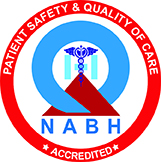Over the past few weeks (as of September 22, 2025) the state of Kerala has reported a sharp rise in infections caused by Naegleria fowleri, a free-living amoeba sometimes sensationalized in media as a “brain-eating bacteria.” Health authorities have recorded roughly 80 confirmed infections and about 21 deaths due to primary amoebic meningoencephalitis (PAM) this year, more than double last year’s totals and prompting an urgent public-health response.
What the organism actually is
Despite the common phrase “brain-eating bacteria,” the pathogen is not a bacterium but a microscopic amoeba, Naegleria fowleri. It lives in warm freshwater (lakes, rivers, poorly chlorinated pools, and some domestic water supplies) and causes primary amoebic meningoencephalitis (PAM) when contaminated water enters the nose and the amoeba migrates to the brain. PAM progresses rapidly and is usually fatal.
How it spreads and why it’s so dangerous
Infection occurs when contaminated warm water is forced up the nose—typical routes include swimming, diving, or even nasal rinsing with unsterile water. Symptoms can begin within days and include severe headache, fever, nausea, stiff neck, seizures and rapid deterioration to coma. Globally, PAM has an extremely high mortality rate (over 97% historically), which explains why any cluster triggers alarm.
What Kerala and clinicians are doing now
Local authorities have stepped up measures such as chlorinating wells, water tanks and public bathing areas, and issuing public advisories to avoid exposure to warm freshwater while investigations continue. Clinicians in Kerala are also using more aggressive diagnostic testing and combinations of drugs (including miltefosine in some cases), which local reports say may be improving survival compared with historical averages — though outcomes remain serious.
Simple, evidence-based precautions for the public
- Avoid swimming or diving in warm, untreated or poorly chlorinated fresh water during hot months.
- Don’t force water up the nose — use nose clips or keep head above water.
- Use only sterile, distilled, or boiled (then cooled) water for nasal rinses (neti pots) or sinus irrigation.
- Ensure household storage tanks and wells are properly chlorinated and maintained; follow local public-health guidance.
How is infection with brain-eating amoeba diagnosed?
Dr V K Gupta, Sr Neurosurgeon at Silver Streak Multispeciality hospital informs that if your healthcare provider thinks you might’ve been infected by brain-eating amoeba (Naegleria fowleri), they’ll recommend a spinal tap – also known as lumbar puncture, to see if the organism is in your cerebrospinal fluid (CSF). They may also recommend a brain biopsy. During this procedure, they’ll take a tissue sample and examine it under a microscope to check for the presence of the amoeba.
The prognosis for an individual infected with Naegleria fowleri is extremely unfavorable. Despite medical intervention, most patients do not survive. Once symptoms appear, the illness typically progresses rapidly, often leading to coma and death within about 7 to 10 days
This spike in Kerala is a reminder that rare but lethal infections can occur when environmental conditions and human exposure align. The organism is an amoeba (not a bacterium), infections are fast and deadly, and prevention focuses on limiting nasal exposure to warm, untreated freshwater and ensuring safe water supplies. Public health measures and rapid clinical care are the state’s current priorities as authorities track and try to contain the cluster.


